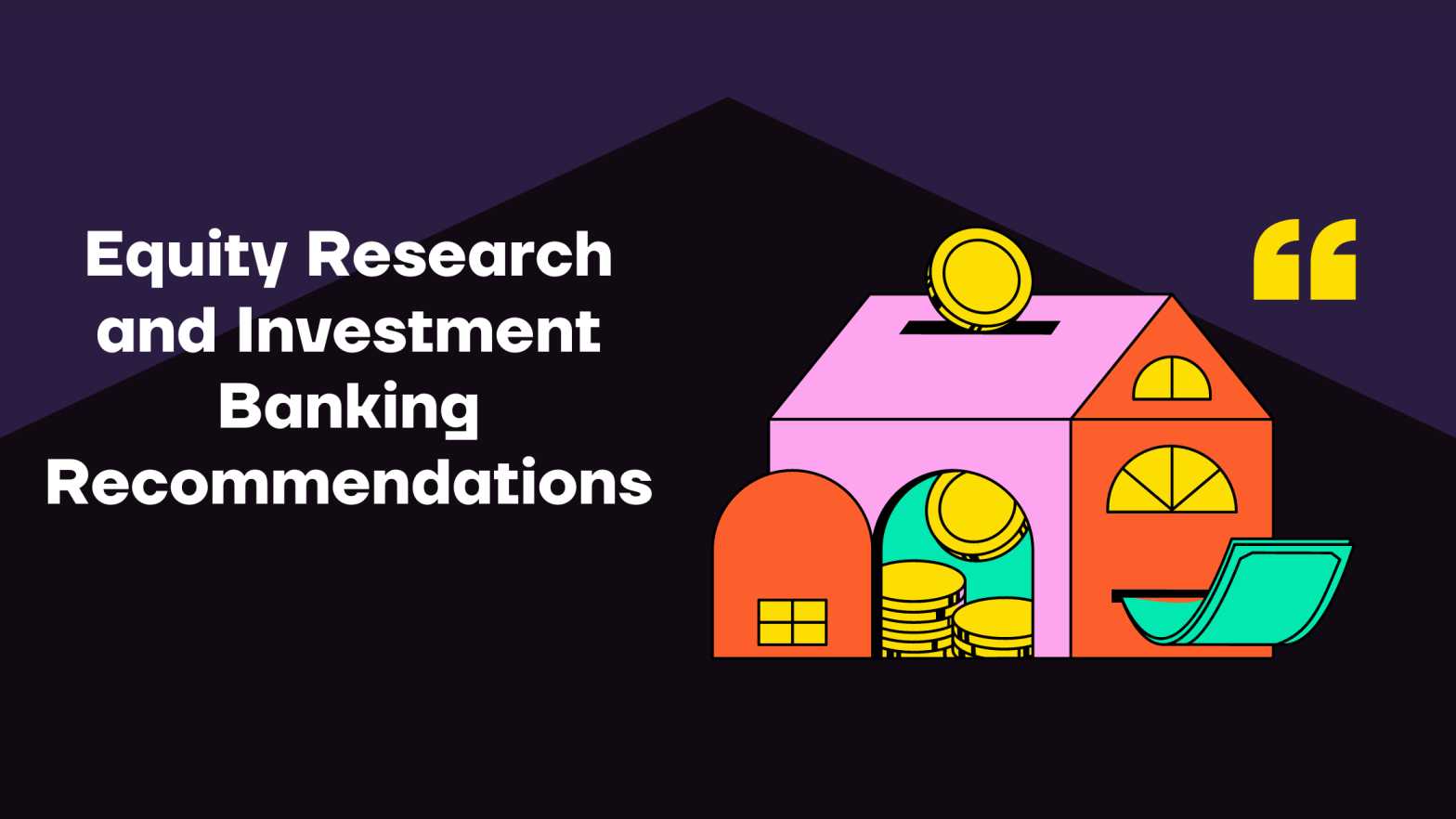Equity research and investment banking are crucial in helping investors make informed decisions. Equity research provides insightful analysis and recommendations on stocks, while investment banking provides consultation services for capital raising and mergers and acquisitions.
This blog will explore the importance of equities research and investment banking and help prospective finance employees gain a thorough understanding of these areas.
Understanding Equity Research
Equity research focuses on fundamental factors such as financial performance, industry trends, and competitive landscape. Here are a few key aspects of equity research:
- Fundamental Analysis: Equity research analysts thoroughly analyse a company’s financial statements evaluating the company’s general health, profitability, and financial performance. They assess important measures, including profit margins, return on equity, and sales growth. This helps them understand the company’s financial stability. Analysts also consider the management team, the company’s position in the industry, and the marketplace it operates in.
- Valuation Techniques: Analysts employ various valuation techniques to estimate a stock’s fair value. They also perform discounted cash flow (DCF) analysis estimating the present value of a company’s future cash flows. It considers factors like growth and discount rates.
- Sector Research: Analysts conduct in-depth research on industry trends, regulatory changes, and macroeconomic factors that impact a company’s performance. They analyse market dynamics, competitive forces, and emerging trends within the sector. This helps them understand the opportunities and challenges a company may face and stay updated on industry developments and macroeconomic indicators.
The Role of Investment Banking
Investment banking is essential to the financial ecosystem, bridging the gap between businesses and capital markets. Investment bankers execute transactions and offer strategic advice to businesses, governments, and other organisations. Here are some key areas where investment bankers excel:
- Capital Raising: Investment bankers play a crucial role in assisting companies with raising capital. They advise on the optimal capital structure, helping determine the appropriate debt and equity financing mix. Investment banks connect businesses with potential investors through private placements or public offerings. They guide the offering’s pricing, timing, and structuring, ensuring the company’s capital-raising objectives are met while maximising investor interest.
- Mergers and Acquisitions (M&A): Investment bankers facilitate Mergers and Acquisitions transactions. They assist clients in identifying suitable acquisition or merger targets, conducting valuation analyses, and negotiating deal terms. Investment banks provide strategic advice on deal structuring to maximise synergies and shareholder value. They also conduct due diligence to assess the financial and legal aspects of the target company, helping mitigate risks associated with the transaction.
- IPOs and Secondary Offerings: Investment banks manage taking a company public through an initial public offering (IPO). They guide companies through the regulatory requirements, ensure compliance, and coordinate with underwriters and legal advisors. Investment banks also handle secondary offerings, assisting companies in issuing additional shares to raise capital or enable existing shareholders to sell their holdings. They help determine the offering price, optimise timing, and execute the transaction, ensuring favourable terms for their clients.
Benefits of Equity Research and Investment Banking Recommendations
Equity research and investment banking recommendations offer several advantages to investors:
- Informed Investment Decisions: Equity research and investment banking recommendations provide investors with a comprehensive and detailed analysis of stocks and investment opportunities. Thorough research, including fundamental analysis and valuation techniques, helps investors gain valuable insights into a company’s financial health, growth prospects, and intrinsic value. A clearer understanding of the rewards and dangers of particular investments supports these choices. It could involve purchasing, promoting, or keeping stocks.
- Risk Management: Equity research is vital in identifying and assessing potential risks associated with specific stocks or sectors. Detailed analysis of financial statements, industry trends, and the competitive landscape helps identify company performance risk factors. This information facilitates informed decision-making and effective management of their portfolios. For instance, investors can diversify their holdings, adjust exposure to specific sectors, or implement risk mitigation strategies.
- Access to Expertise: Investors get access to industry experts possessing deep knowledge and experience in evaluating investment opportunities. These professionals thoroughly know the markets, sectors, and economic variables affecting investment choices. They can provide specialised guidance, unique insights, and access to information that may not be easily available to individual investors.
Challenges and Limitations
While equity research and investment banking recommendations provide valuable guidance, there are a few challenges and limitations to consider:
- Bias and Conflicts of Interest: Analysts may face conflicts of interest or bias due to pressure from investment banking divisions, leading to potential inaccuracies in their recommendations.
- Market Volatility: Rapid market changes and unexpected events can make it challenging for equity research analysts and investment bankers to predict stock performance accurately.
- Regulatory Compliance: Both equity research and investment banking are subject to strict regulatory guidelines to maintain transparency and protect investor interests.
Conclusion
Equity research and investment banking recommendations are essential tools for investors looking to navigate the complex world of finance. Investors must rigorously assess advice, considering any potential biases and constraints.
Enrol in the Certified Investment Banking Operations Professional course by Imarticus Learning to establish yourself better in equity research and investment banking. The investment banking course offers guidance from industry experts with industry-recognised certification to boost your CV. A certification in investment banking can help you a lot if you are looking for a career in investment banking or a career in banking.











